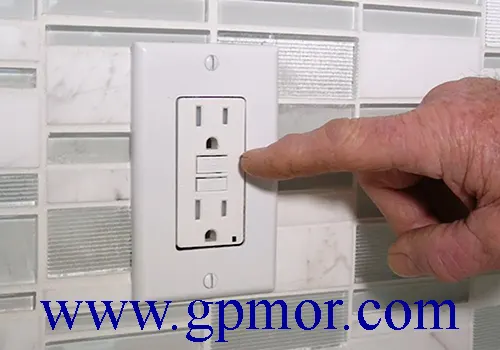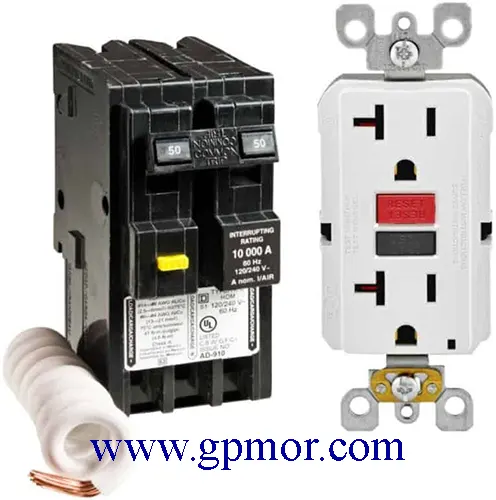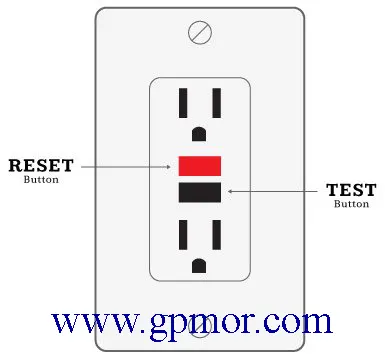Table of Contents
If you’ve ever experienced a Ground Fault Circuit Interrupter (GFCI) tripping, you know how frustrating it can be. Understanding why GFCI Tripping happens and how to address it is crucial for both safety and convenience. Let’s delve into a real-world scenario to explore this common issue.

A Real-Life Example: The Pit Boss 820 Smoker
The Problem of GFCI Tripping
An older Pit Boss 820 smoker, inherited and plugged into outdoor outlets tied to a garage GFCI, keeps tripping the GFCI. The garage also has a fridge on the same GFCI. Despite replacing the igniter, the smoker still trips the GFCI, and plugging it into the kitchen’s GFCI results in the same issue.
Possible Causes
1. Overloaded Circuit:
– Having both a fridge and a smoker on the same GFCI circuit might overload it. Each appliance requires substantial power, especially during startup phases.
2. Faulty GFCI Outlet:
– GFCI outlets can wear out over time and become overly sensitive, tripping more easily.
3. Ground Fault in Smoker:
– The smoker might have an internal ground fault, causing the GFCI to trip for safety reasons.
4. Highly Sensitive GFCI:
– Some GFCIs are more sensitive to power surges, especially during the ignition phase of the smoker, which can draw 300-700 watts.
Solutions
1. Replace the GFCI Outlet:
– A new GFCI outlet might resolve the issue if the current one is overly sensitive or faulty.
2. Use a Non-GFCI Outlet:
– Plugging the smoker into a non-GFCI outlet can help determine if the GFCI outlet is the problem. If the smoker works without tripping, the issue lies with the GFCI.
3. Separate Circuits:
– Ensure that the fridge and smoker are on separate circuits. The fridge should ideally have its own 15-amp circuit.
4. Unplug Other Appliances:
– Try unplugging the fridge and other appliances to see if the smoker still trips the GFCI. This can help identify if an overloaded circuit is the issue.
Diagnostic Steps
1. Check for Ground Fault:
– Using a multimeter, check for continuity between the smoker’s heating element and its outer jacket. Any continuity indicates a ground fault.
2. Test Different GFCI Outlets:
– Plug the smoker into different GFCI outlets in the house. Consistent tripping indicates an issue within the smoker.
3. Extension Cord Test:
– Use a long extension cord to plug the smoker into a non-GFCI outlet. If it works fine, the issue is with the GFCI sensitivity.
Expert Recommendations
– Manual Ignition: Disconnect the igniter and manually light the smoker. This can help if the igniter is drawing too much power.
– Professional Inspection: If troubleshooting doesn’t resolve the issue, a professional electrician should inspect the wiring and the smoker for any faults.
Understanding GFCI Tripping
Common Causes
1. Ground Faults:
– Occur when electrical current finds an unintended path to ground, often due to worn insulation or moisture.
2. Leakage Current:
– Small amounts of current leaking due to aging or damaged insulation can accumulate and trip the GFCI.
3. Moisture:
– High humidity or water in the receptacle box can cause tripping.
4. Overloaded Circuits:
– Connecting too many devices can exceed the circuit’s capacity, causing a trip.
5. Faulty GFCI Outlets:
– Over time, the internal circuitry can wear out, leading to frequent tripping.
Preventive Measures
– Regular Testing: Monthly testing of GFCI outlets using the “Test” and “Reset” buttons ensures they are functioning correctly.
– Proper Maintenance: Regularly check for worn or damaged insulation on wires and appliances.
– Load Management: Distribute the load across multiple circuits to prevent overloading.
– Dry Environment: Ensure receptacle boxes, especially outdoors, are weatherproof and dry.
Conclusion
GFCI outlets are essential for electrical safety, but they can sometimes be a source of frustration. By understanding the causes and solutions for GFCI tripping, you can address the issue effectively and ensure your appliances, like the Pit Boss 820 smoker, operate smoothly and safely. Remember, if troubleshooting steps do not resolve the issue, consulting a professional electrician is always the best course of action.


